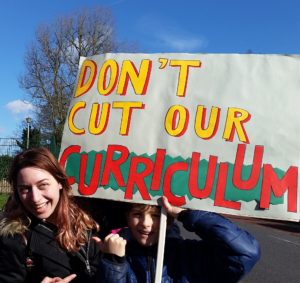The Covid-19 crisis has shone a spotlight on the crisis in our education system, especially the Early Years and Primary sector.
Children in the UK start more formal education earlier than in most other developed countries. Their class sizes are larger, and their classrooms are smaller. Huge funding cuts and staffing cuts all add to the problems.
Since the development of our modern schooling model, governments (including Labour), have completely failed to listen to education experts about what the requirements are for the building blocks for good child development. The valuable work on play in the curriculum, that was developed from the Plowden report in 1967, has still not been implemented.
We must ask ourselves why the mental health of our young people is at an all-time low? Testing and more testing saturates, distorts and ‘infects’ the curriculum. The continued pressure on the curriculum for more formal methods of teaching, especially at an early age is toxic.
The opportunities for imaginative, play-based and creative activities are being squeezed out of the curriculum, disregarding how young children develop and what sort of experiences they need to harness before moving on.
I know schools where painting and creative activities are rare, teachers forced to concentrate on a more rigid curriculum which stultifies rather than invigorates children’s enquiring minds.
When I started teaching over 28 years ago, teachers worked together to create a curriculum that all children could relate to, using the local area and resources. We shared books not just isolated passages. Children worked in mixed ability groups, getting extra support where needed.
We learnt about punctuation in context, but we encouraged children to discuss and use their imagination and to be excited about learning new things and not afraid if they didn’t get it right first time. Teachers were more trusted. We worked hard ensuring that the curriculum was designed for our children not a ‘one size fits all!’ Over time, the trust has been stripped away.
Teachers want their pupils to develop the skills and learning that will enable them to achieve and to support them in that journey. The freedom to develop a curriculum that meets the needs of the pupil has been taken away from them.
For many working-class children, their experience of school is increasingly one of pressure. With over 4.2 million children living in poverty, schools should be a haven – an opportunity to thrive and to feel valued as well as exploring and learning.
It is imperative that as, and when, children return to school, education must be very different. We will need to step up the fight develop a curriculum that is child centred instead of test driven.
DEMANDS :
- Put safety and well-being first. NEU must stand firm on demanding the ‘5 tests’ are met.
- Invest in education. Reverse school cuts, reduce class sizes.
- For child-centred not test-driven education. End SATs and League Tables in England.
- For an anti-racist curriculum that stresses the need for working-class unity.
- Value school staff. End performance pay, win national pay scales and workload limits for all.
- End Academies. Bring all schools, including private schools, under democratic local control.
Jane Nellist




